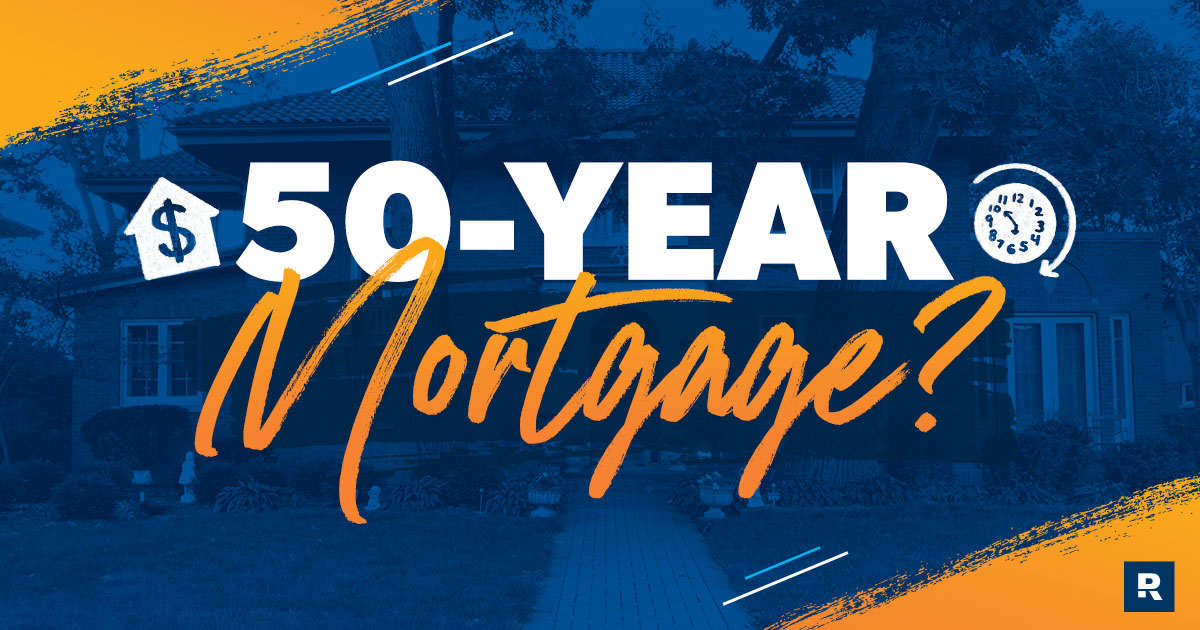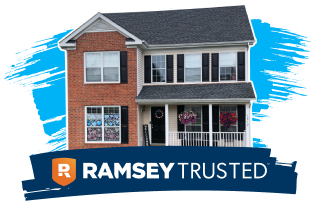
Ah, 50 years ago. Those were different times, weren’t they? Humans had yet to land on the moon, the Beatles were all the rage in music, a gallon of gas cost a quarter, and people made telephone calls standing in one place—unless they had a really, really long cord.
Man, that seems like forever ago, doesn’t it? Now, imagine paying the same mortgage that entire time.
The 50-year mortgage (cue the horror music, thunder, and haunted house screams) is a housing loan with a fixed interest rate and low monthly payments that you repay over 50 years. That’s 600 months! It’s the monster of mortgages, the Moby Dick of loans, and the mortgage that guarantees you’ll be in debt for the rest of your adult life.
What is a 50-year mortgage? Why the heck would anyone take one out? Let’s take a closer look and learn more.
What is a 50-year mortgage?
Like Chinese water torture, a 50-year mortgage is a very long, very slow form of paying off your house. The 50-year mortgage first arrived in southern California, where houses were getting expensive and people were looking for creative ways to lower their monthly mortgage payments.
How does the 50-year mortgage work?
Like its cousins the 15- and 30-year mortgages, the 50-year mortgage is a fixed-rate mortgage, meaning the interest rate stays the same for the (long) life of the loan. You’ll pay both principal and interest every month, and…if you’re still alive at the end of your 50-year loan period, you’ll officially be a homeowner.
Why would anyone choose a 50-year mortgage?
There’s no good reason to put yourself into debt for that much time! But people do it, and they usually do it for one of these three reasons:
Get the right mortgage from a trusted lender.
Whether you’re buying or refinancing, you can trust Churchill Mortgage to help you choose the best mortgage with a locked-in rate.
1. You have low monthly payments.
The most common reason people lock themselves into a 50-year mortgage is to reduce their monthly payments. The idea is to spread the mortgage over a longer period of time so you can pay less each month than you would with a shorter-term loan.
2. You can buy a bigger house . . . but it’s more than you can actually afford.
Be honest with yourself here. If you have to take out a 50-year mortgage to lower your monthly payments, you’re definitely trying to borrow more than you should. The interest rate is also significantly high, so you’re paying a fortune in interest alone. You need to take a look at how much house you can really afford and reconsider your mortgage options.
3. You can start building equity and refinance later.
Some people want to buy a house, but they aren’t in good enough financial shape to qualify for a 15-year conventional loan. So they sign up for a 50-year mortgage and hope their circumstances will change.
Maybe they think they’ll get a promotion and refinance the home later or they’ll build equity and sell the house when the market is hotter. They plan to make small payments now, then one large payment later.
Folks—this is broke people’s logic!
If you can’t afford a house now, you should rent. Period. It’s not a waste of money. It’s a chance for you to pay off your debt, save for a strong down payment, and get financially ready for a better mortgage. Read on to learn why a 50-year mortgage is such a bad investment.
How much are you really paying for a 50-year mortgage?
Sure, when you take out a 50-year mortgage, your monthly payments will be lower. But you’re extending your mortgage over a longer period of time, so you’re going to pay way more in interest.
Dave Ramsey recommends one mortgage company. This one!
How much more?
Let’s say you take out a 50-year mortgage for $200,000 at 6% interest. Your monthly payments would be $1,053 (just including principal and interest), but your interest paid over the life of the loan would be a little higher than $430,000!
Now, let’s say you take out that same $200,000 at a 4.5% interest rate on a 15-year mortgage. (You probably noticed our example rate for a 15-year mortgage is much lower. More on that below.) Your monthly payments would be $1,530 (again, just principal and interest). So even though you’re paying $500 more a month, your total interest paid with a 15-year mortgage would be just a little over $100,000.
That’s right—the 50-year mortgage would cost you over $330,000 more in interest than the 15-year mortgage. That’s literally enough for another house!
What are the drawbacks of a 50-year mortgage?
There are hundreds of reasons not to put yourself in debt for 50 years. But for the sake of time, let’s just go over four.
1. You’re paying back a loan for 50 years.
It’s 50 years, people. Fifty years! Do you really want your grandchildren to pay off their mortgages before you finish paying yours? Serious question here.
2. As mentioned, you end up paying a lot more in interest.
In exchange for more time to pay off your loan, lenders will charge you a higher interest rate. Combine that interest rate (and your borrowing fees) with 50 years and—TA-DA!—you have one very expensive loan.
3. You build equity slowly . . . too slowly.
People sometimes take out a 50-year mortgage because they want to start building equity. But what most folks don’t realize is that because they’re making smaller monthly payments, they’re actually building equity at a rate that’s slower than molasses.
4. You won’t really own a house for 50 years!
It’s worth repeating, but we’re talking about half a century of debt! Need we say more? It’s going to take you longer to own your home outright compared to someone with a shorter-term mortgage. You’ll be stuck in an interest cycle that steals away cash from other parts of your future.
What kind of mortgage should you really get?
First off, let’s make something clear—the sooner you can pay off your mortgage, the sooner you can feel the weight of the loan lifted, free your budget, and officially own your home!
We believe everyone can have this kind of financial freedom, which is why we only recommend the best mortgage option out there: the 15-year conventional mortgage. You’ll save thousands in interest and you’ll get out of debt faster.
You don’t have to put yourself in debt for 50 years just to own a house! You can get a home the right way—by getting out of debt now, building an emergency fund of six months of expenses, and saving at least a 10% down payment (although 20% is best). With this financial foundation in place, you’ll be ready to take out a mortgage with a monthly payment that’s no more than 25% of your take-home pay.
If you want to get a mortgage the right way, talk to a mortgage professional you can trust. Check out Churchill Mortgage. They’ve helped thousands of people just like you finance their homes without using a 50-year mortgage. Churchill takes pride in educating first-time homebuyers and helps them make wise decisions about the biggest purchase they’ll ever make.
Contact Churchill Mortgage today!
Next Steps
- Talk to a mortgage lender you can trust.
- Steer clear of 50-year loans—they’re way too expensive in the long run.
- Get a 15-year fixed rate conventional loan.


